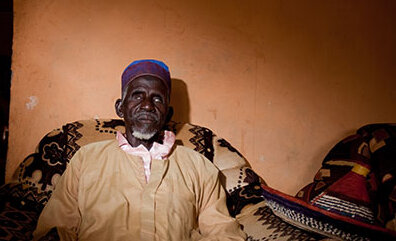Onchocerciasis

Onchocerciasis, also known as river blindness, is a parasitic disease caused by the parasite onchocerca volvulus, transmitted by multiple bites of a black fly that breeds near fast flowing rivers. As the parasite multiplies in the body, its offspring, called microfilariae, invade the skin and cause intense rashes and debilitating itching. When microfilariae enter the eyes, they cause an inflammatory response; long-term this leads to visual impairment and, ultimately, blindness.
Communities affected by river blindness are known to abandon rich farmland to escape the disease. The symptoms of the disease interfere with the ability of adults to work and raise their families and the ability of children to grow and learn.
A single, annual dose of Mectizan given to eligible patients controls the disease and relieves the symptoms. After two decades of free Mectizan, some countries in Latin America have achieved elimination of transmission of the disease and are now stopping treatment. It is now hoped that elimination is also feasible in Africa.